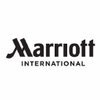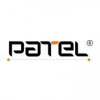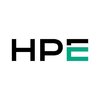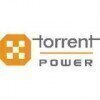IT Executive
200+ IT Executive Interview Questions and Answers
Asked in Amara Hospital

Q. How can you identify if a system has a hardware issue?
Monitoring system logs, running diagnostic tools, checking hardware indicators.
Regularly monitor system logs for any hardware-related errors or warnings.
Run diagnostic tools to check the health and performance of hardware components.
Check hardware indicators such as LED lights, error messages on screen, or unusual noises.
Perform hardware tests to identify any issues with specific components like RAM, CPU, or hard drive.
Consult hardware documentation or contact technical suppo...read more

Asked in Atlas Tours & Travels

Q. Did you ever used Sophos Firewall? Antivirus Server? What is IP-PBX & EP-PBX? Difference between Leased Line and Broadband? What will be the port number of POP3/SMTP Incoming and outgoing mail server? Ever used...
read moreYes, I have experience with Sophos Firewall, Antivirus Server, IP-PBX, EP-PBX, Leased Line, Broadband, G-Suit Admin Panel, CPanel, RAM corruption identification, Cat6 color coding, network printers, DHCP, Manual IP, public IP, check disk errors command, DVR, and NVR.
Yes, I have used Sophos Firewall and Antivirus Server for network security.
IP-PBX stands for Internet Protocol Private Branch Exchange, used for VoIP communication within an organization.
EP-PBX stands for Electron...read more
IT Executive Interview Questions and Answers for Freshers

Asked in Prologic Web Solutions

Q. What is the difference between LAN and WiFi?
LAN is a wired network that connects devices within a limited area, while WIFI is a wireless network that allows devices to connect without cables.
LAN uses Ethernet cables to connect devices, while WIFI uses radio waves.
LAN is faster and more secure than WIFI.
WIFI allows for mobility and flexibility, while LAN is limited to the physical location of the cables.
Examples of LAN include office networks and home networks, while WIFI is commonly used in public places like cafes and...read more
Asked in Amara Hospital

Q. how to install os in a system what are steps you have before installing OS in a system
To install an OS in a system, you need to prepare the system, boot from installation media, follow on-screen instructions, and configure settings.
Prepare the system by backing up important data and ensuring hardware compatibility
Boot from installation media such as a USB drive or DVD
Follow on-screen instructions to select language, partition the disk, and install the OS
Configure settings such as user accounts, network settings, and security options
Complete the installation pr...read more
Asked in Amara Hospital

Q. What is the OSI model, how many layers does it have, and can you describe them?
The OSI model is a conceptual framework that standardizes the functions of a telecommunication or computing system into seven different layers.
There are 7 layers in the OSI model: Physical, Data Link, Network, Transport, Session, Presentation, and Application.
Each layer has specific functions and protocols that operate at that layer.
For example, the Physical layer deals with the physical connection between devices, while the Application layer deals with user interfaces and ap...read more
Asked in VTT Transport Solutions

Q. How do you handle IT emergencies or downtime in a transport company to minimize disruptions to operations?
I handle IT emergencies in a transport company by implementing a proactive approach, having backup systems in place, and ensuring quick response times.
Implementing a proactive approach by regularly monitoring systems and conducting maintenance to prevent emergencies
Having backup systems in place to minimize downtime in case of emergencies
Ensuring quick response times by having a dedicated IT support team available 24/7
Utilizing remote access tools to troubleshoot and resolve ...read more
IT Executive Jobs



Asked in Amara Hospital

Q. Do you have any experience configuring networking routers and switches?
Yes, I have extensive experience in configuring networking routers and switches.
I have configured Cisco routers and switches in multiple projects.
I am familiar with setting up VLANs, routing protocols, and access control lists.
I have troubleshooted network issues related to routers and switches.
I have implemented security measures such as port security and VPNs on routers and switches.

Asked in GNP Group

Q. If a managing director calls you at the same time as a user with an urgent problem, which call would you prioritize, considering the potential costs to the company if the issue is not resolved quickly?
Prioritize the user's urgent issue, as it may impact operations and costs more than the managing director's call.
Assess the urgency: If the user's problem affects critical operations, it takes precedence.
Consider potential costs: A system outage could lead to significant financial losses, outweighing the managing director's concerns.
Communicate effectively: Inform the managing director of the situation and assure them you'll follow up immediately after resolving the user's is...read more
Share interview questions and help millions of jobseekers 🌟


Asked in Embibe

Q. How can you recover data from a virus-infected computer?
Data recovery from a virus infected computer involves isolating the infected system, removing the virus, and using backup or data recovery tools.
Isolate the infected computer from the network to prevent further spread of the virus
Scan the computer using antivirus software to detect and remove the virus
If the virus has corrupted or encrypted data, restore from a backup if available
Use data recovery tools to recover any lost or deleted files
Ensure the computer is fully protecte...read more

Asked in Embibe

Q. What Is Domain? What is the difference between Domain & Workspace?
A domain is a network of computers that are managed by a single entity. A workspace is a virtual environment for collaboration.
A domain refers to a group of computers and devices that are connected and managed by a central authority.
It is typically used in the context of networking and refers to a specific network or network segment.
A domain can be a local area network (LAN) within an organization or a wide area network (WAN) connecting multiple locations.
For example, a compa...read more
Asked in Amara Hospital

Q. What is a PST file and where can it be used?
PST file is a personal storage table file used by Microsoft Outlook to store email messages, contacts, calendar events, and other data.
PST file stands for Personal Storage Table file
It is used by Microsoft Outlook to store email messages, contacts, calendar events, and other data
PST files can be used to backup or archive Outlook data
They can also be used to transfer Outlook data between different computers

Asked in DTDC Express

Q. Do you have any troubleshooting ideas on Printer configuration, Router, Networking, subnetting and DHCP ?
Troubleshooting printer, router, networking, subnetting, and DHCP involves systematic checks and configurations to resolve issues.
Printer Configuration: Ensure the printer is connected to the correct network and has the latest drivers installed. For example, check if the printer's IP address matches the network's range.
Router Troubleshooting: Restart the router and check for firmware updates. If devices can't connect, verify the SSID and password are correct.
Networking Issues...read more

Asked in Patel Infrastructure

Q. What materials are needed to install and configure CCTV?
Materials needed for installing and configuring CCTV include cameras, cables, DVR/NVR, monitor, power supply, and tools.
Cameras (e.g. dome cameras, bullet cameras)
Cables (e.g. coaxial cables, Ethernet cables)
DVR/NVR (Digital Video Recorder/Network Video Recorder)
Monitor (for viewing footage)
Power supply (for cameras and DVR/NVR)
Tools (e.g. drill, screwdriver)

Asked in RML Mehrotra Pathology

Q. What is the osi model What is the straight cable colour coding What is the backup server What is the router , firewall , switch What is the safe mode tell me Ip class What is the tcp Ip What is the load balance...
read moreAnswers to various IT-related questions including OSI model, cable color coding, backup server, router, firewall, switch, safe mode, IP class, TCP/IP, and load balancer.
OSI model is a conceptual model that characterizes and standardizes the communication functions of a telecommunication or computing system.
Straight cable color coding follows the T568A or T568B standard.
Backup server is a server that stores and manages backup copies of files, databases, and other important dat...read more

Asked in ALLEN Career Institute

Q. How do you troubleshoot when the internet is not working on a system?
Troubleshooting internet issues involves systematic checks and alternative solutions to maintain productivity.
Check physical connections: Ensure cables are securely connected to the router and computer.
Restart the router: Power cycling the router can resolve many connectivity issues.
Run network diagnostics: Use built-in tools to identify and troubleshoot network problems.
Switch to a mobile hotspot: If available, use a smartphone's hotspot feature for temporary internet access...read more

Asked in Patel Infrastructure

Q. How many types of switches are used in networking for LAN and CCTV networks?
There are two main types of switches used in networking for LAN network and CCTV network: managed switches and unmanaged switches.
Managed switches offer more control and features, such as VLAN support and Quality of Service (QoS) settings.
Unmanaged switches are simpler and easier to set up, but offer less customization and control.
Examples of managed switches include Cisco Catalyst series and HP ProCurve series.
Examples of unmanaged switches include Netgear ProSafe series and...read more
Asked in VTT Transport Solutions

Q. Can you discuss your experience implementing and managing IT systems in the transportation industry?
I have extensive experience implementing and managing IT systems in the transportation industry.
Implemented GPS tracking systems to monitor fleet vehicles in real-time
Managed software for scheduling and routing optimization to improve efficiency
Integrated electronic logging devices (ELDs) to ensure compliance with regulations
Utilized data analytics to identify trends and improve decision-making processes

Asked in Hewlett Packard Enterprise

Q. What is an incident, and how is it created?
An incident is an unplanned interruption or reduction in quality of an IT service. It is created when an event is detected or reported.
An incident is an event that disrupts or has the potential to disrupt normal IT operations.
It can be created when an event is detected by monitoring systems or reported by users.
Incidents can range from minor issues like software crashes to major outages.
They are typically logged in an incident management system for tracking and resolution.
Exa...read more
Asked in Amara Hospital

Q. What is Networking and what are the types.
Networking is the practice of connecting computers and other devices to share resources and information.
Networking involves the use of hardware devices such as routers, switches, and access points.
Types of networking include LAN (Local Area Network), WAN (Wide Area Network), WLAN (Wireless Local Area Network), and MAN (Metropolitan Area Network).
Networking protocols such as TCP/IP, Ethernet, and Wi-Fi are used to facilitate communication between devices.
Networking can be wire...read more
Asked in Amara Hospital

Q. What type of internet connection is suitable for an organization?
The organization will use high-speed fiber optic internet for faster and more reliable connectivity.
High-speed fiber optic internet will provide faster and more reliable connectivity for the organization.
Fiber optic internet is more secure and has higher bandwidth compared to traditional copper wire internet.
Examples of fiber optic internet providers include Verizon Fios, AT&T Fiber, and Google Fiber.

Asked in Prologic Web Solutions

Q. Can you set up a computer lab with 100 computers?
Yes, I can make a lab of 100 computers.
I would need to procure 100 computers and necessary peripherals like monitors, keyboards, and mice.
I would need to set up a network infrastructure to connect all the computers.
I would need to install necessary software and operating systems on all the computers.
I would need to ensure proper power supply and cooling for all the computers.
I would need to hire IT staff to maintain and manage the lab.
Examples of labs with 100 computers inclu...read more

Asked in Cobb Apparels

Q. What is an LDAP user, and how do you create one with home directory permissions?
LDAP user is a user account stored in a directory service that provides centralized authentication and authorization.
LDAP stands for Lightweight Directory Access Protocol
LDAP users are stored in a directory service such as OpenLDAP or Microsoft Active Directory
To create an LDAP user with home directory permission, you need to first create the user account in the directory service and then set the appropriate permissions on the home directory
This can be done using tools such a...read more

Asked in Prologic Web Solutions

Q. What is the difference between CCNA and MCSE?
CCNA is a Cisco certification for networking while MCSE is a Microsoft certification for system administration.
CCNA focuses on networking while MCSE focuses on system administration
CCNA covers topics such as routing, switching, and network security
MCSE covers topics such as server installation, configuration, and management
CCNA is more specialized while MCSE is more broad in scope
CCNA is a prerequisite for some advanced Cisco certifications
MCSE is a prerequisite for some adva...read more

Asked in Orra Fine Jewellery

Q. Tell me about your skills in Microsoft Dynamics 365 or MD365?
I have extensive experience in Microsoft Dynamics 365, including customization, configuration, and integration.
Customization of entities, forms, views, and workflows
Configuration of business processes and security roles
Integration with other systems using Power Automate or Azure Logic Apps

Asked in ALLEN Career Institute

Q. Do you have experience with CCTV installation and configuration?
I have extensive experience in CCTV installation and configuration, ensuring optimal surveillance and security solutions.
Familiar with various CCTV systems, including IP and analog cameras.
Experience in configuring network settings for remote access and monitoring.
Knowledge of video management software for recording and playback.
Ability to design camera placement for maximum coverage and minimal blind spots.
Conducted installations in diverse environments, such as corporate of...read more

Asked in Hester Biosciences

Q. How do you ensure compliance with software licensing regulations within an organization?
Ensuring compliance with software licensing regulations involves implementing policies, conducting audits, and utilizing software asset management tools.
Implementing clear software usage policies and procedures
Conducting regular audits to monitor software usage and licenses
Utilizing software asset management tools to track licenses and ensure compliance
Educating employees on software licensing regulations and consequences of non-compliance

Asked in DTDC Express

Q. Have you ever provided support through remote access using AnyDesk or a similar tool? Describe your experience.
I have provided remote support using AnyDesk, enabling quick troubleshooting and efficient resolution of technical issues.
Remote Desktop Access: Used AnyDesk to connect to users' machines, allowing me to see their screens and understand their issues in real-time.
File Transfer: Utilized AnyDesk's file transfer feature to send necessary software updates or configuration files directly to the user's device.
Session Recording: Recorded sessions for training purposes, helping new t...read more

Asked in DTDC Express

Q. What is a firewall, and how are IPv4 and IPv6 related to firewalls?
A firewall is a network security device that monitors and controls incoming and outgoing traffic based on predetermined security rules.
Traffic Filtering: Firewalls filter traffic based on IP addresses, protocols, and ports, allowing or blocking data packets accordingly.
Stateful Inspection: Modern firewalls track the state of active connections and make decisions based on the context of the traffic.
NAT (Network Address Translation): Firewalls can perform NAT, allowing multiple...read more
Asked in Amara Hospital

Q. How many ways can we install an OS on a system?
There are several types of operating systems that can be installed on a system.
There are three main types of operating systems: Windows, macOS, and Linux.
Within each type, there are different versions and distributions available for installation.
Some examples of operating systems include Windows 10, macOS Catalina, and Ubuntu Linux.
Virtual machines can also be used to install multiple operating systems on a single system.
Asked in JAI AMBEY EMERGENCY SERVICES

Q. what is dhcp, dns and how to server manage and how to vehicle update in ems portal, and what is router and witch , etc
DHCP is a network protocol that assigns IP addresses to devices, DNS translates domain names to IP addresses, EMS portal manages vehicle updates, routers direct network traffic.
DHCP assigns IP addresses dynamically to devices on a network
DNS translates domain names to IP addresses for internet communication
EMS portal manages vehicle updates and tracking in a fleet management system
Routers direct network traffic between different networks or devices
Interview Questions of Similar Designations
Interview Experiences of Popular Companies





Top Interview Questions for IT Executive Related Skills



Reviews
Interviews
Salaries
Users

















